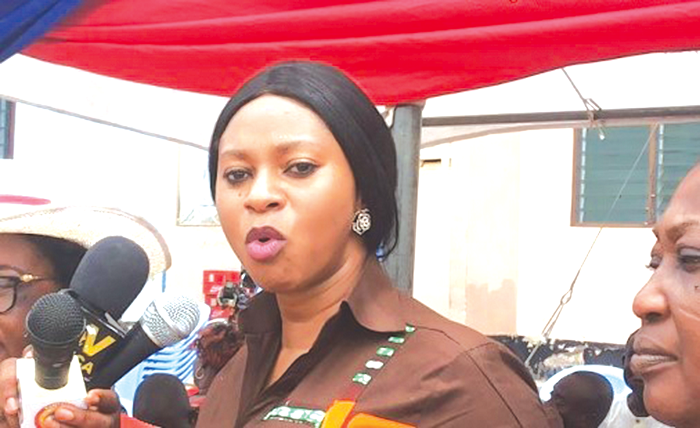
Desist from inflating cost, ‘ghost’ procurement -Within public service
Corruption in whatever form is a canker militating against socio-economic development in the country. The thought that corruption only emanates from political office holders is erroneous.
Public and civil servants who have access to procurement inflate price of goods, works and technical services.
Such attitude has contributed to the slow pace of socio-economic development in the country.
It is not a chemistry of illusion but a tint of realism that the civil and public service administration is bedeviled with corruptible elements that seek to abuse the privilege of stewardship to the nation through dishonesty in running the affairs of the country.
It is observed that in the quest for procuring an item for an office, prices are inflated. The provisional invoice is mostly used to purchase the item without subjecting it to a bargaining power or any scrutiny to disburse funds in relation to the actual cost of goods and services.
Over-invoicing has become a norm in almost all government institutions. Funds are disbursed based on the provisional invoice, but the actual price is what is mostly used to purchase the item(s).
The balance realised from over-invoicing is not accounted for but goes into individual pockets. Such attitude features in the day-to-day running of the civil and public service administration.
The Nana Addo Dankwa Akufo-Addo administration under the New Patriotic Party (NPP) is stipulating mechanisms to militate against wastage in the system so as to have value for money in ensuring that the national cake reaches every nook and cranny of the country, but not just a few individuals.
The unfortunate attitude has become a norm within the public and civil service to the extent that even some account officers who disburse funds for procurement have interest in the balance as there is a gentlemanly agreement between them and the procurement officers to share the booty.
The Public Procurement (Amendment) Act, 2016 (Act 914) comprises three components under the Threshold for Procurement Methods, namely goods, works and technical services.
Thresholds
The Thresholds at the Regional, Municipal, Metropolitan and District Assemblies (MMDAs) and National Competitive Tender have limits to its respective price quotation in seeking external authority approval to disburse funds.
That means price quotation which does not need an external authority for approval gives a procurement officer the privilege of quoting price and that is where an undue advantage is taken to sacrifice honesty on the altar of inflating cost of goods, works and services.
A survey conducted indicated that sometimes blank invoices are collected from traders, which enables the procurement officer to forge prices of goods. For example, an item costing GH¢100 could be inflated to GH¢200.
More so, the trade name on a receipt of an invoice covering items bought does not reflect the item description. For example, a table or office desk bought covers a receipt with the name “Akosua’s Restaurant”. That is a clear indication that the receipt has a fictitious element.
It is imperative that finance officers and auditors ensure that receipts covering items bought reflect the item description. For example, an office desk bought must reflect the trade name on the receipt, “Kwasi’s Wood Works” or any related name.
In some cases too, an item such as office desk is procured with the receipt bearing the name “Dealers in General Goods”, but in reality the business owner sells only soft drinks.
The Registrar-General’s Department must redefine its role by adopting inspectorate functions to ensure that any business to be registered must reflect the business to be transacted.
An enquiry shows that mostly the price quotation from procurement within the civil and public service could be three times higher than that of a private entity. In that wise, what is the essence of engaging the procurement outfit within the public and civil service when the cost from a private entity is far less?
There have been instances where prices have been inflated, denying value for money and incurring wastage.
There is also the tendency of creating “ghost” procurement by just looking for a blank receipt, quoting price of items purported to be needed in an office but in reality, funds are received into individual’s pocket without the item being purchased.
Such things feature within the Ministries, Departments and Agencies (MDAs) and MMDAs. Little drops of petty thievery make gargantuan corruption.
Corruption
How can such thievery be reduced or eradicated entirely from the public and civil service administration? There must be a mechanism, either manual or automated, to guard against such thievery just as the Ghana Integrated Financial Management Information System (GIFMIS) and National Paperless System seek to improve efficiency and value for money in public financial management.
The question to harp on is: Can the government’s quest for having value for money and reducing wastage in public financial management succeed if such elements of inflating prices of goods, creating ‘ghost’ procurement and petty thievery continue to feature within the public and civil service administration?
Such thievery has been sacrificed on the altar of poor salary for government workers. However, the government has set up a committee to review the national pay system with a view to improving the system to meet international best practices.
It is hoped that such a policy helps to reduce such petty thievery, if not to entirely eradicate it.
The writer is an Officer of the Information Services Department. Writer’s E-mail:
